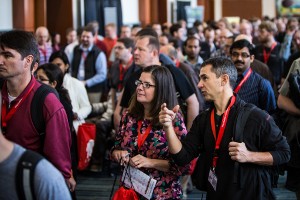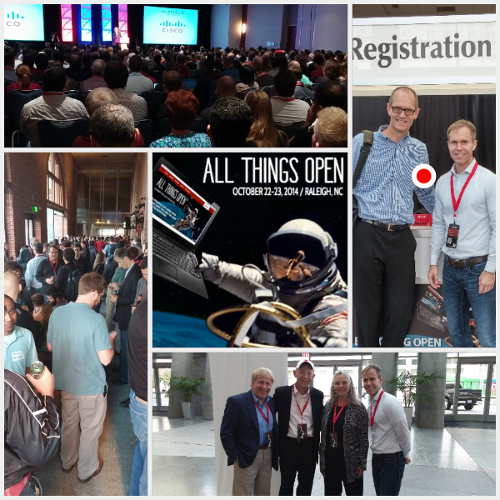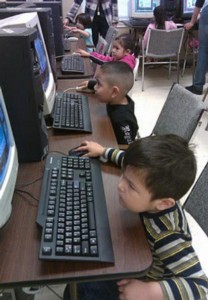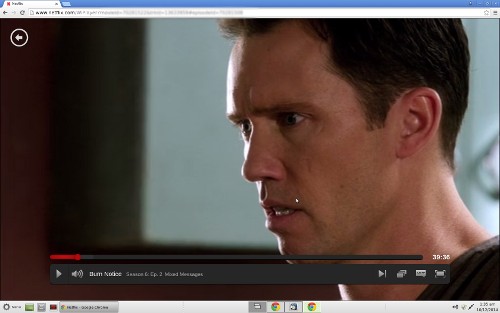There was absolutely nothing wrong with this year’s All Things Open conference. There were a few glitches, as might be expected, but not enough to matter. Was it perfect? Probably not. Perfection at a conference would probably be pretty boring — and boring would be a fault keeping it from being perfect, if you’ll excuse a little circular logic. Let’s just say say that ATO was more than good enough — and then a lot more.
But now it’s over, one for the record books, as they say, leaving behind memories and anticipation for 2015.

I saw this last year at ATO, which is about the only opportunity I have to rub elbows with big tech. This year, I no longer raised an eyebrow when I saw good things going on and positive energy being generated by the development teams at companies with worrisome business practices. I figure this is a good thing. The suits need to be surrounded by FOSS folks. Maybe a little of that “share and share alike” philosophy will rub off.
Take Facebook, for example. There’s more going on with the social giant besides Zuckerberg and his friends being busy turning data mining into profits.

It seems that the company is committed to open sourcing practically everything it creates, from hardware to software. I knew about the company’s open sourcing of green hardware through the Open Compute Project, but I’d assumed the company was like many other firms, given its track record on privacy issues — happy to build infrastructures on open source and give nothing back.
Not true, according to Pearce.
Christine Hall has been a journalist since 1971. In 2001, she began writing a weekly consumer computer column and started covering Linux and FOSS in 2002 after making the switch to GNU/Linux. Follow her on Twitter: @BrideOfLinux





 What took me by surprise was an invitation to be the closing keynote speaker. “Surprised” isn’t nearly adequate. For almost a week afterward, I checked my inbox several times a day, waiting for the apologetic message that they had sent the email to the wrong person.
What took me by surprise was an invitation to be the closing keynote speaker. “Surprised” isn’t nearly adequate. For almost a week afterward, I checked my inbox several times a day, waiting for the apologetic message that they had sent the email to the wrong person.






 Nope. I’m an advocate of free “as in speech” software — which includes the freedom to choose. If there’s a FOSS solution for something I need or want to do, I’ll take that every time, and encourage my friends to do so as well. However, if there’s something I need or want to do with no FOSS solution available, I might use a proprietary solution, depending on the depth of my need or want and on how draconian the terms of the proprietary EULA.
Nope. I’m an advocate of free “as in speech” software — which includes the freedom to choose. If there’s a FOSS solution for something I need or want to do, I’ll take that every time, and encourage my friends to do so as well. However, if there’s something I need or want to do with no FOSS solution available, I might use a proprietary solution, depending on the depth of my need or want and on how draconian the terms of the proprietary EULA.


